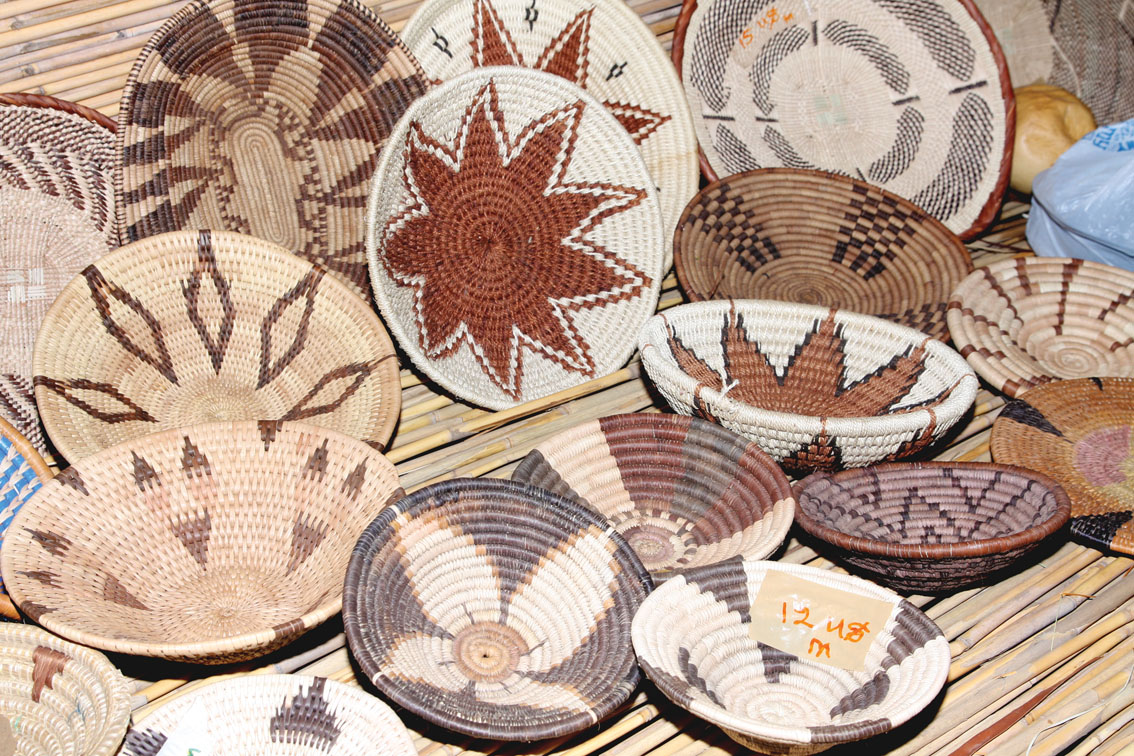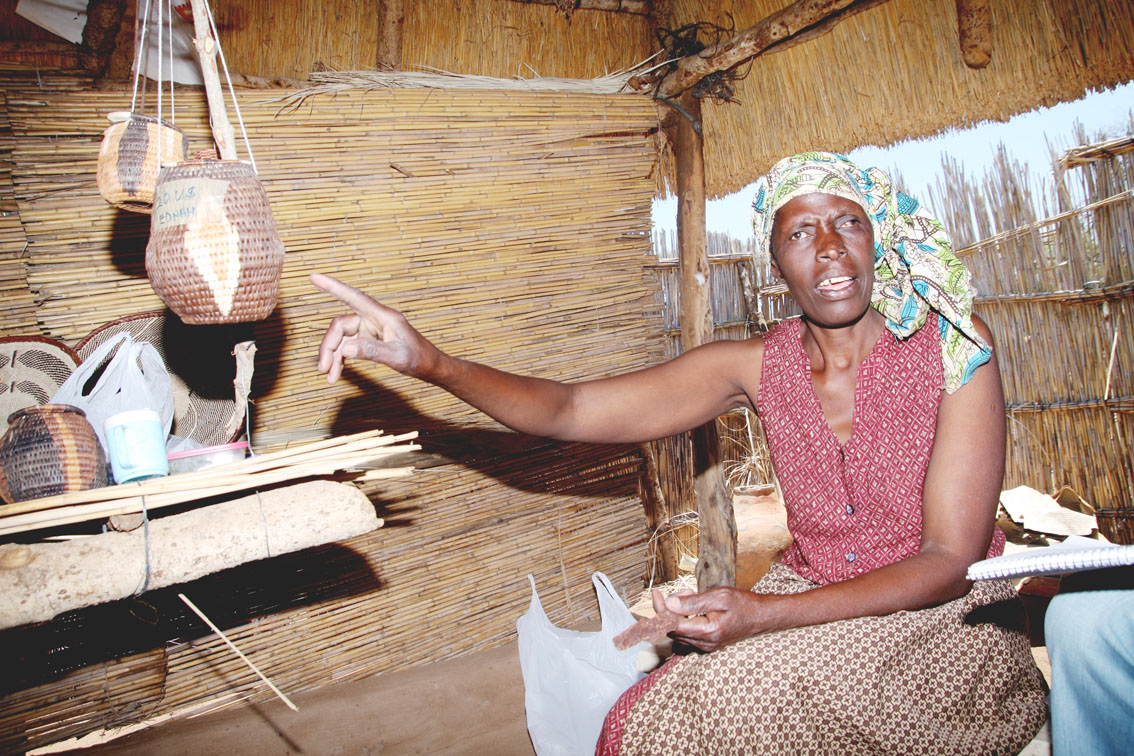WOMEN PILLAR OF COMMUNITIES
Source : KUTLWANO
Author : Ketshepile More
Location : GHANZI
Event : Social
And that is because of the resilience women have shown over the years in various scenarios, especially where life demanded something extra-ordinary.
A clear picture emerges in Mabele in the Chobe District where a group of women wake up to a new dawn every day with the sole purpose of providing for their families.
The Lwaavo Art and Culture group consists 15 women weavers who operate along the main road which place has become a rendezvous for weaving and displaying finished baskets.
The Mabele women started the group five years ago with an underlying urge of preserving the Basubiya culture notwithstanding financial constraints. So as to be as original in approach and packaging as possible, Lwaavo weavers decided to use raw materials found in the Chobe area. Although now the area is close to being depleted of raw materials, they have a secondary supply from nearby villages such as Satau and Parakarungu which comes at a cost though.
The beautiful baskets that are the jewel of the women of Chobe District are made from various trees especially the palm which is mostly used for decoration. The women also use the bush tree which was in the past used to brush teeth and kill bad odour. Corn of the maize, bird plum as well as aloe vera are also used to create a magnificent basket that eventually catches the eye of a tourist from as far as Europe. To create colourful baskets, the women get creative with these materials as they mix them accordingly.
For example, Noriah Rukuro of Lwaavo says for a black colour they mix the bird plum with a rust tin. She explains that for a blue colour they boil the blue carbon paper with the plum. To create the basket also takes time, determination and dedication. As Noriah explains, a medium size basket can take up to three weeks to complete. Otherwise on a good season Noriah says they can take two weeks to finish the basket and have it ready for the market.
Although they have their traditional way of weaving these baskets, Noriah admits they also learn from other tribes. This, she says, helps broaden their knowledge of weaving as well as creating unique baskets which are more appealing to the consumer.
Beautiful as they are, Noriah says the baskets can go on for a month without getting any buyer. Mainly, she says the problem is that they do not have a proper structure in Kasane where tourists or anyone interested could be directed to them to buy; unless they take their product to town which in their case is cumbersome.
Because they are a group of women, they strive to benefit as individuals as well as keep the group going by selling these baskets. Therefore, two baskets are shared between a member and a group. One basket sold benefits the individual and one basket sold benefits the group. However, as is always the case, Noriah expresses concern with locals whom she says do not want to part with their cash.
In most cases they price their products in US dollars and British pounds. Obviously that is for the tourists but Noriah says if a local wants to buy they always give them at a local price though people always decry high prices. “But the high prices are a result of the raw materials which we now have to buy from other locals,” charges Noriah.
It is not only the women of Lwaavo who are weavers in Mabele, there is also a group of women who have volunteered to impart skills to school going children as a way of preserving culture. The women come to Mabele Primary School every Wednesday to coach students on weaving while on other days they sell to customers.
According to one of the women, Kahundu Chibeya, they teach students from Standard Five and the project started this year after they built the cultural club house last year. Kahundu says the children learn the tricks of weaving fast and they are impressed with the progress. She says they extend their coaching to making of bracelets, neckpieces and other accessories.
Although the project is doing well, Obusitswe Tshetlho who is a teacher, says they are faced with financial constraints. Tshetlho says as such they struggle to get raw materials. “The women share the profits with the school and it is not enough,” says Tshetlho, explaining that the school gets five per cent of the profit from sales of the products made.
Nevertheless, the school head teacher, Lawrence Monthe, has vowed to monitor progress of the project besides seeking help from relevant authorities to assist the school. ENDS
Teaser:
A clear picture emerges in Mabele in the Chobe District where a group of women wake up to a new dawn every day with the sole purpose of providing for their families...














